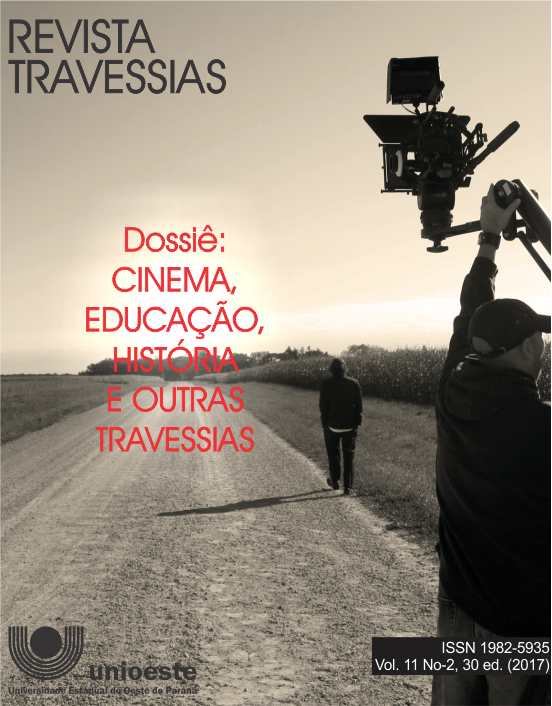Epistemologia complexa na Literatura e na Filosofia
Palavras-chave:
Complexidade, Epistemologia, Linguagem, Discurso, Racionalidade.Resumo
A cultura letrada que serviu de alicerce ao pensamento ocidental, inicia-se com a literatura homérica, por volta do século VIII a.C, e com o pensamento filosófico platônico por volta do século V a.C. Os dois modelos de racionalidade já são apresentados por Platão de modo antagônico, sendo que o cerne da disputa por estabelecer os critérios de verdade e falsidade, racionalidade e irracionalidade envolve um plano de discordâncias ideológicas na forma de se lidar com o conhecimento. As próprias divergências internas na filosofia, ao longo de 25 séculos, têm evidenciado o quanto esta ordem de saber é fluida nas suas concepções, pois do seu interior emergem as mais diversas concepções do que é real ou irreal. A negação do saber literário encampado na mitologia homérica por oposição à criação de um tratado de Estética filosófica permitiu estabelecer a transição entre o modelo de exposição de saberes mitológicos, e a racionalização do próprio mito. A epistemologia filosófica que constitui um dos principais alicerces do pensamento contemporâneo, em vários momentos da história ocidental, tem se debatido com traços divergentes que fazem pensar em visões românticas do pensamento humano, como tem acontecido com aspectos da denominada teoria da complexidade. A literatura tem o poder de abranger a totalidade dos mundos possíveis do espírito humano, sendo que a compreensão filosófica permite que sejam descortinadas as realidades dos claustros da imaginação literária. Ao longo do texto será abordada a ideia de epistemologia complexa, tendo por base a discussão do alcance e dos limites do conceito de paradigma da complexidade apresentado por Edgar Morin.
Downloads
Referências
BOCCACCIO, Giovanni. Decamerão; (Trad. Torrieri Guimarães). 2 ed., São Paulo: Abril Cultural, 1971.
BUBER, Martin. Eu e Tu. Petrópolis: Vozes, 1998.
CALVINO, Ítalo. Se una notte d’inverno un viaggiatore. Milano: Nondadori, 1994.
CAMUS, Albert. A Peste. Rio de Janeiro: Record, s.d.
CERVANTES, Miguel de. Don Quijote de la Mancha. 15 ed., Barcelona: Editorial Juventud, 2000.
ECO, Umberto. Interpretação e superinterpretação. São Paulo: Martins Fontes, 1993.
FLAUBERT, Gustav. Madame Bovary; (Trad. de Erico Corvisieri). São Paulo: Nova Cultural, 2003.
FOUCAULT Michel. A arqueologia do saber. 3 ed., Rio de Janeiro: Forense, 1987.
HUME, David. Investigações acerca do entendimento humano. 5 ed., São Paulo: Nova Cultura, 1992. – (Os pensadores)
KAFKA, Franz. O Castelo; (Trad. de Modesto Carone). São Paulo: Companhia das Letras, 2000.
KANT, Immanuel, Crítica da razão pura, 3ª ed., São Paulo, Nova Cultura, 1987.
KUNDERA, Milan. A arte do romance. São Paulo: Nova Fronteira, 1988.
KUNDERA, Milan. A insustentável leveza do ser; (Trad. de Teresa B. Carvalho). São Paulo: Círculo do Livro, 1984.
MALRAUX, André. A Condição Humana; (Trad. de Jorge de Sena). São Paulo: Abril Cultural, 1972.
MORIN, Edgar. A necessidade de um pensamento complexo. In. MENDES, Cândido (Org.). Representação e Complexidade. Rio de Janeiro: Garamond, 2003.
NIETZSCHE, Friedrich. Sobre verdade e mentira no Sentido extra-moral. São Paulo: Nova Cultura, 1991.
PLATÃO. A República. São Paulo: Nova Cultural, 1999.
TRUJILLO, Albeiro Mejia. A base triádica da obra literária. Brasília: Thesaurus, 2013.
Downloads
Publicado
Como Citar
Edição
Seção
Licença
Aviso de Direito Autoral Creative Commons
Política para Periódicos de Acesso Livre
Autores que publicam nesta revista concordam com os seguintes termos:
1. Autores mantêm os direitos autorais e concedem à revista o direito de primeira publicação, com o trabalho simultaneamente licenciado sob a Licença Creative Commons Attribution que permite o compartilhamento do trabalho com reconhecimento da autoria e publicação inicial nesta revista.
2. Autores têm autorização para assumir contratos adicionais separadamente, para distribuição não-exclusiva da versão do trabalho publicada nesta revista (ex.: publicar em repositório institucional ou como capítulo de livro), com reconhecimento de autoria e publicação inicial nesta revista.
3. Autores têm permissão e são estimulados a publicar e distribuir seu trabalho online (ex.: em repositórios institucionais ou na sua página pessoal) a qualquer ponto antes ou durante o processo editorial, já que isso pode gerar alterações produtivas, bem como aumentar o impacto e a citação do trabalho publicado (Veja O Efeito do Acesso Livre).
Licença Creative Commons
Esta obra está licenciada com uma Licença Creative Commons Atribuição-NãoComercial-CompartilhaIgual 4.0 Internacional, o que permite compartilhar, copiar, distribuir, exibir, reproduzir, a totalidade ou partes desde que não tenha objetivo comercial e sejam citados os autores e a fonte.



